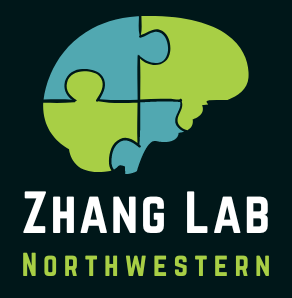Our Research
Glioblastoma (GBM) is the most aggressive and lethal brain malignancy in adults, well-known to be highly therapy resistant and not curable with either current standard-of-care (surgical resection, radiotherapy & adjuvant temozolomide chemotherapy) or emerging cancer immunotherapy.
Our multidisciplinary research group aims to integrate nanotechnology, immunology, cancer biology, immunometabolism, and bioinformatics to unveil the mechanisms of GBM therapy resistance, identify novel therapeutic targets, create innovative therapeutic strategies, and enable a bench-to-bedside translation. Our mission is to enhance the quality of care for patients with malignant brain tumors.
Creating innovative therapeutic strategies for targeting immunosuppressive mechanisms in brain tumors
The immunosuppressive microenvironment is one major cause of GBM therapy resistance to both standard-of-care and immunotherapy. As a hallmark of GBM, tumor-associated myeloid cells (TAMCs) represent the most predominant immune population and are a key driver of immunosuppression.
Building on our expertise in cancer immunology and nanotechnology, we have engineered innovative nano-therapeutics that enable effective in vivo targeting and modulation of TAMCs in GBM models. Harnessing the functionality of TAMC by impairing their immunosuppressive activity and/or remodeling them to be tumor-eradicating cells greatly boosts anti-GBM immunity and generates an immunologically “hot” tumor. We also seek to gain insight into the crosstalk between TAMCs and adaptive immunity (i.e. effector T & B cells).
Enabling precision genetic modulation of GBM stem cells and tumor-infiltrating immune cells
Despite the recognition of RNA therapeutics as the next-generation medicine, the clinical transition is still hampered by their unfavorable characteristics for in vivo application. In the context of GBM, the heterogeneity of tumor microenvironment and the existence of the blood-brain-barrier provide even greater challenges.
Our group has been focused on developing non-viral nano-therapeutic platforms for effective and specific delivery of RNA therapeutics (e.g. mRNA & siRNA) towards GBM stem cells and immune cells in the tumor microenvironment. Besides RNA, we are also interested in developing highly efficient delivery system for in vivo CRISPR-Cas9 gene editing. Our platforms serve as (i) new therapeutic & vaccination approaches to potentiate anti-tumor immunity and/or overcome therapy resistance in GBM, and (ii) powerful tools to advance mechanistic studies in basic immunology & biology for identifying new therapeutic targets.
Understanding the interplay between standard-of-care and GBM immune microenvironment
It has been revealed that the anti-tumor efficacy of conventional treatments, such as chemotherapy or radiotherapy, is largely attributed to the therapy-induced immune response, in which the innate immunity plays a critical role.
One key research interest of our laboratory is to understand how standard-of-care shapes GBM immune microenvironment, and how host immune response impacts the outcome of standard-of-care. Our research has been focused on revealing the effects of standard-of-care on brain tumors and their associated myeloid compartment. We seek to leverage the therapy-triggered immune response to improve the standard-of-care for GBM patients through new combinatorial treatment regimens.



